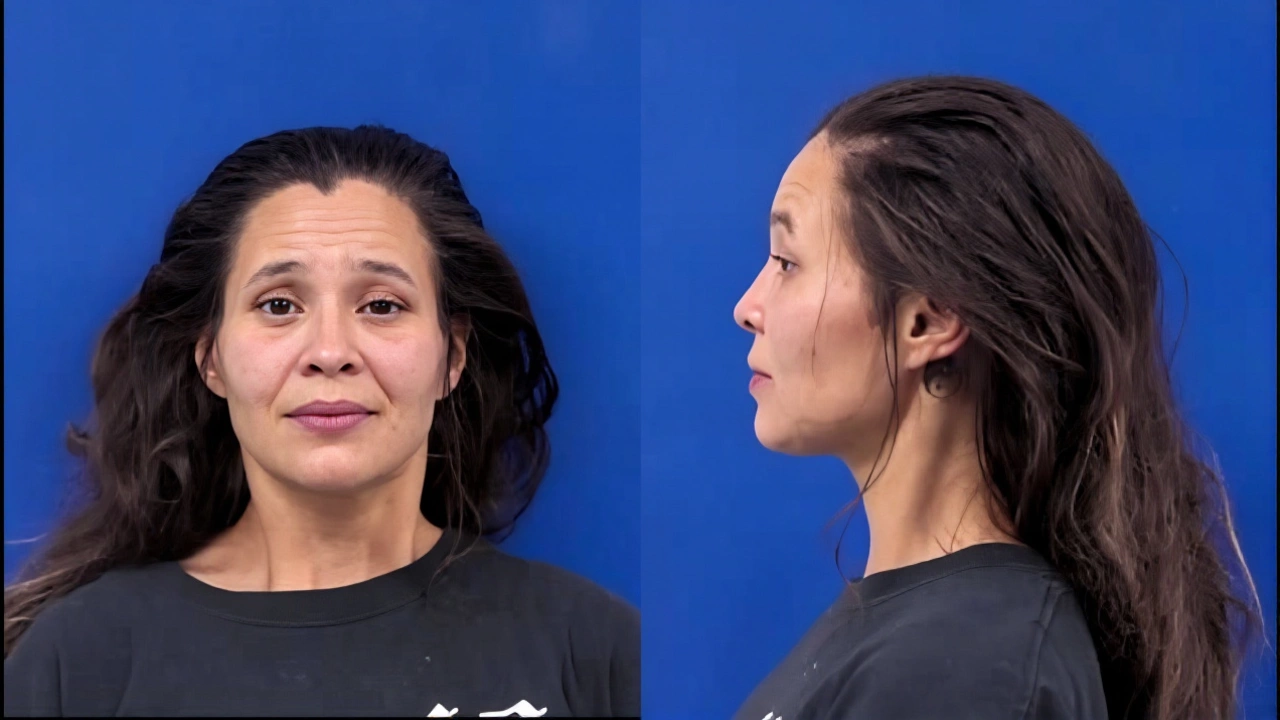On November 19, 2025, an intoxicated woman was arrested in Prince Frederick, Maryland, after launching a violent outburst inside a residential home — just hours after receiving a DUI citation. The incident, reported by The BayNet Staff and journalist John Power Waters, underscores a troubling pattern: alcohol-fueled escalation from traffic violations to domestic disturbance. What started as a routine traffic stop spiraled into a scene of chaos, prompting immediate intervention by the Calvert County Sheriff's Office. The woman, whose identity has not been publicly released, was taken into custody at the scene, while the home’s other occupants were escorted to safety by deputies.
From DUI to Domestic Disturbance
The sequence of events began when deputies pulled over the woman for suspected impaired driving near the intersection of Route 2/4 and Old Solomons Island Road. She failed field sobriety tests and was issued a formal DUI citation. But instead of accepting the citation calmly, she became combative — yelling, threatening officers, and refusing to ride in the patrol vehicle. According to a source familiar with the case, she then forced her way into a nearby home on the 300 block of Lusby Road, where she reportedly threw objects, screamed at residents, and physically shoved a woman who tried to intervene.
“We’ve seen DUIs turn ugly before,” said a Calvert County Sheriff’s spokesperson, speaking on condition of anonymity. “But this one escalated faster than most. She wasn’t just angry — she was dangerous.”
Deputies arrived within minutes and subdued the woman using non-lethal force. She was transported to the Calvert County Detention Center and booked on charges of DUI, disorderly conduct, and assault. No serious injuries were reported, but the emotional toll on the home’s occupants was immediate. One resident, who asked not to be named, said, “It felt like a storm walked through the door. We didn’t know if we’d make it out alive.”
Andre Jaijon Grice: A Separate Case, But Same Community
While the woman’s arrest dominated headlines, another incident unfolded nearby. On the same day, Andre Jaijon Grice, 28, of Prince Frederick, was arrested in a separate incident involving a drug-related disturbance. Though authorities have confirmed Grice’s arrest and transport to the Calvert County Detention Center, they’ve stated there’s no direct link between his case and the woman’s violent outburst. Still, the coincidence has raised questions about patterns of substance abuse and violence in the region.
Prince Frederick, the county seat of Calvert County, has seen a 17% increase in DUI-related arrests over the past two years, according to county statistics. The Calvert County Sheriff's Office attributes the rise to both increased enforcement and a growing crisis in alcohol and opioid dependency. Their official website publishes quarterly overdose data — last quarter, 12 fatal overdoses were recorded in the county, with 7 involving alcohol as a contributing factor.

Leadership Transition in Maryland’s Prosecution System
The arrest occurred amid a significant shift in Maryland’s prosecutorial leadership. On November 17, 2025, just two days before the incident, Kirsten Brown, Deputy State’s Attorney for Frederick County, was named Executive Director of the Maryland State’s Attorneys’ Association. Her appointment, effective after her retirement in December 2025, comes after nearly 27 years of service prosecuting violent crimes, including domestic violence and DUI-related fatalities.
“Kirsten has been a voice for victims when no one else would listen,” said State’s Attorney Charlie Smith of Frederick County. “Her work shaped how we handle cases like this — not just as crimes, but as public health emergencies wrapped in legal consequences.”
Brown’s career focused heavily on the intersection of substance abuse and violence — a lens that now guides the association’s new training programs for prosecutors across Maryland. Her successor will inherit a system under pressure: over 4,200 DUI arrests were made statewide in 2024, with more than 1,100 involving physical altercations or property damage.
Victim Support Amid Rising Tensions
Calvert County’s Calvert County Sheriff's Office maintains one of Maryland’s most robust victim support networks. Their Victims of Crime Information page includes resources for domestic violence survivors, sexual assault victims, stalking victims, and those struggling with mental health or substance abuse. The office also operates a 24/7 crisis line and partners with local nonprofits to provide free counseling and emergency housing.
“When someone’s arrested after a DUI and then attacks someone in their home, it’s not just a legal issue,” said Maria Delgado, a victim advocate with Calvert County’s Community Supervision Unit. “It’s a cry for help — and we’re trying to respond before it turns fatal.”
Yet, resources remain stretched. The county’s Home Detention Program, designed to keep low-risk offenders out of jail, is at 98% capacity. Meanwhile, the Pre-Trial Release Program has seen a 31% increase in defendants with documented substance use disorders since 2023.

What Comes Next?
Legal proceedings against the woman are expected to begin in early January 2026. Prosecutors are considering enhanced charges due to the domestic nature of the outburst, potentially triggering mandatory intervention programs under Maryland’s Family Violence Act. The Calvert County Sheriff’s Office plans to review its response protocols for DUI-to-domestic escalation cases, especially when suspects refuse to comply with citations.
Meanwhile, community leaders are pushing for expanded sobering centers and mobile crisis units — models already successful in Anne Arundel and Montgomery Counties. “We can’t arrest our way out of this,” said Prince Frederick City Councilmember Linda Tran. “We need treatment, not just jail cells.”
Frequently Asked Questions
How common are violent outbursts after DUI arrests in Calvert County?
Between 2022 and 2024, 14% of all DUI arrests in Calvert County involved physical altercations or threats to others — up from 8% in 2019. While most cases don’t escalate to home invasions, the trend shows a troubling rise in aggression among repeat offenders with untreated substance use disorders.
What resources are available for victims of domestic violence in Prince Frederick?
The Calvert County Sheriff’s Office offers 24/7 crisis intervention, emergency shelter referrals, and legal advocacy through its Victim Services Unit. Nonprofits like Calvert Crisis Center provide free counseling, court accompaniment, and safety planning. All services are confidential and available regardless of immigration status.
Why was Andre Jaijon Grice mentioned in the report?
Grice was arrested on the same day in a separate incident, unrelated to the woman’s case. His name appeared in press releases because he was also transported to the Calvert County Detention Center. Authorities clarified there’s no connection between the two arrests, but the timing led to public confusion.
How does Kirsten Brown’s retirement impact future DUI prosecutions?
Brown’s leadership helped shape Maryland’s approach to treating DUIs with violence as complex cases requiring both legal and therapeutic interventions. Her successor will inherit a system prioritizing diversion programs for first-time offenders with addiction histories — a shift away from pure incarceration.
Can someone be charged with assault after a DUI citation if no one was physically hurt?
Yes. Under Maryland law, assault doesn’t require injury — only intentional fear of harm or offensive contact. The woman’s shoving of a resident and destruction of property during her outburst meet that threshold, even without visible injuries. Prosecutors often add assault charges in such cases to hold offenders accountable for escalating behavior.
What’s being done to prevent future incidents like this?
Calvert County is piloting a new program called “Crisis First,” where deputies respond to alcohol-related disturbances with a behavioral health specialist instead of just backup officers. The pilot, launching in January 2026, mirrors successful models in Baltimore and Montgomery Counties and aims to reduce arrests by connecting people to treatment on the spot.
